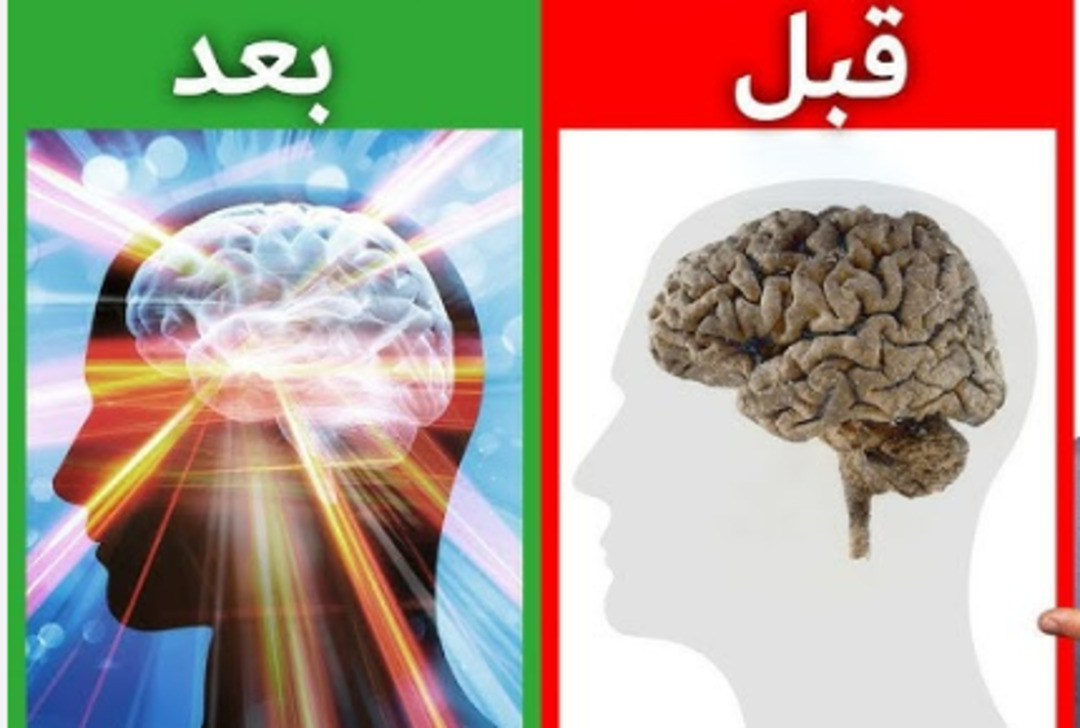-
A New Study Reveals the Impact of Fasting on the Brain

A recent study has demonstrated that intermittent fasting actively contributes to reshaping the brain, enhancing its cognitive and emotional functions, and reactivating ancient evolutionary pathways designed to promote survival and adaptation.
Participants who adopted the intermittent fasting regimen took part in the study, which was published in a specialized scientific journal. The results showed notable changes in the "left orbitofrontal cortex," an area responsible for behavioral regulation and impulse control, reflecting a positive influence on higher brain functions.
According to the study, feelings of irritability and emotional agitation when hungry are not merely physical sensations but result from complex chemical interactions between the intestines and the brain. Neuroscientist Dr. Sarah Jenkins from Columbia University explains that "these interactions prove that fasting not only affects the body but also alters brain chemistry."
The study also reveals that these positive changes in the brain do not cease after the fasting period ends. Instead, they appear to have a lasting effect akin to "neural reprogramming," which traditional diets do not provide.
One of the key findings is an increase in levels of Brain-Derived Neurotrophic Factor (BDNF), a protein that promotes the growth of nerve cells and strengthens memory and learning abilities. Fasting also reduces neural inflammation and stimulates the "self-cleaning" processes of damaged neurons, significantly improving mental performance.
Living testimonials include fasting practitioners such as James Thompson, a 42-year-old software engineer, who states: "After 14 hours of fasting, I feel an unusual focus and mental clarity—as if everything suddenly becomes clear in my mind."
You May Also Like
Popular Posts
Caricature
BENEFIT Sponsors BuildHer...
- April 23, 2025
BENEFIT, the Kingdom’s innovator and leading company in Fintech and electronic financial transactions service, has sponsored the BuildHer CityHack 2025 Hackathon, a two-day event spearheaded by the College of Engineering and Technology at the Royal University for Women (RUW).
Aimed at secondary school students, the event brought together a distinguished group of academic professionals and technology experts to mentor and inspire young participants.
More than 100 high school students from across the Kingdom of Bahrain took part in the hackathon, which featured an intensive programme of training workshops and hands-on sessions. These activities were tailored to enhance participants’ critical thinking, collaborative problem-solving, and team-building capabilities, while also encouraging the development of practical and sustainable solutions to contemporary challenges using modern technological tools.
BENEFIT’s Chief Executive Mr. Abdulwahed AlJanahi, commented: “Our support for this educational hackathon reflects our long-term strategic vision to nurture the talents of emerging national youth and empower the next generation of accomplished female leaders in technology. By fostering creativity and innovation, we aim to contribute meaningfully to Bahrain’s comprehensive development goals and align with the aspirations outlined in the Kingdom’s Vision 2030—an ambition in which BENEFIT plays a central role.”
Professor Riyadh Yousif Hamzah, President of the Royal University for Women, commented: “This initiative reflects our commitment to advancing women in STEM fields. We're cultivating a generation of creative, solution-driven female leaders who will drive national development. Our partnership with BENEFIT exemplifies the powerful synergy between academia and private sector in supporting educational innovation.”
Hanan Abdulla Hasan, Senior Manager, PR & Communication at BENEFIT, said: “We are honoured to collaborate with RUW in supporting this remarkable technology-focused event. It highlights our commitment to social responsibility, and our ongoing efforts to enhance the digital and innovation capabilities of young Bahraini women and foster their ability to harness technological tools in the service of a smarter, more sustainable future.”
For his part, Dr. Humam ElAgha, Acting Dean of the College of Engineering and Technology at the University, said: “BuildHer CityHack 2025 embodies our hands-on approach to education. By tackling real-world problems through creative thinking and sustainable solutions, we're preparing women to thrive in the knowledge economy – a cornerstone of the University's vision.”
opinion
Report
ads
Newsletter
Subscribe to our mailing list to get the new updates!






















